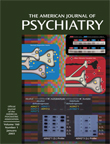Dexamphetamine for Obsessive-Compulsive Disorder
Andy, an 11-year-old boy with ADHD diagnosed at age 5, was treated with methylphenidate. His overactivity, impulsivity, and attention improved, but anxiety symptoms emerged as the dose was increased to 40 mg/day. He started washing his hands excessively; this was accompanied by checking rituals, reassurance seeking, and emetophobia. OCD was diagnosed, and behavior therapy was initiated. For 1 year, Andy’s hyperactivity and impulsivity were well controlled with methylphenidate, but his obsessions and compulsions continued.At his assessment in our service, Andy met DSM-IV criteria for OCD, and a cognitive behavior program was continued with some success. After 3 months, Andy still had significant OCD symptoms. Because his ADHD was quiescent, methylphenidate was withdrawn, as it is a potential anxiogenic agent. His response after 1 week was dramatic; Andy had reduced ritualization and anxiety. His hyperactivity and concentration were unaffected, but his parents found him more affectionate. This improvement lasted 3 weeks before Andy experienced a resurgence of hyperactivity, poor concentration, and attacks of rage. Risperidone, 1 mg/day, was added to his treatment and had some effect on his rage but no impact on his anxiety. His OCD symptoms remained in remission, so methylphenidate was gradually reintroduced. His OCD symptoms then returned, especially the reassurance seeking, hand washing, and fear of illness.Dexamphetamine was substituted for methylphenidate and was gradually increased to 30 mg/day. The anxiety and ritualistic behavior lessened. After 6 weeks, there was still some generalized anxiety and a depressed mood, so citalopram, 10 mg/day, was added. This was associated with significant improvement in affective and anxiety symptoms, socialization, and school performance. These three medications—dexamphetamine, risperidone, and citalopram—have been maintained for Andy, who continues to improve.
References
Information & Authors
Information
Published In
History
Authors
Metrics & Citations
Metrics
Citations
Export Citations
If you have the appropriate software installed, you can download article citation data to the citation manager of your choice. Simply select your manager software from the list below and click Download.
For more information or tips please see 'Downloading to a citation manager' in the Help menu.
View Options
View options
PDF/EPUB
View PDF/EPUBLogin options
Already a subscriber? Access your subscription through your login credentials or your institution for full access to this article.
Personal login Institutional Login Open Athens loginNot a subscriber?
PsychiatryOnline subscription options offer access to the DSM-5-TR® library, books, journals, CME, and patient resources. This all-in-one virtual library provides psychiatrists and mental health professionals with key resources for diagnosis, treatment, research, and professional development.
Need more help? PsychiatryOnline Customer Service may be reached by emailing [email protected] or by calling 800-368-5777 (in the U.S.) or 703-907-7322 (outside the U.S.).

